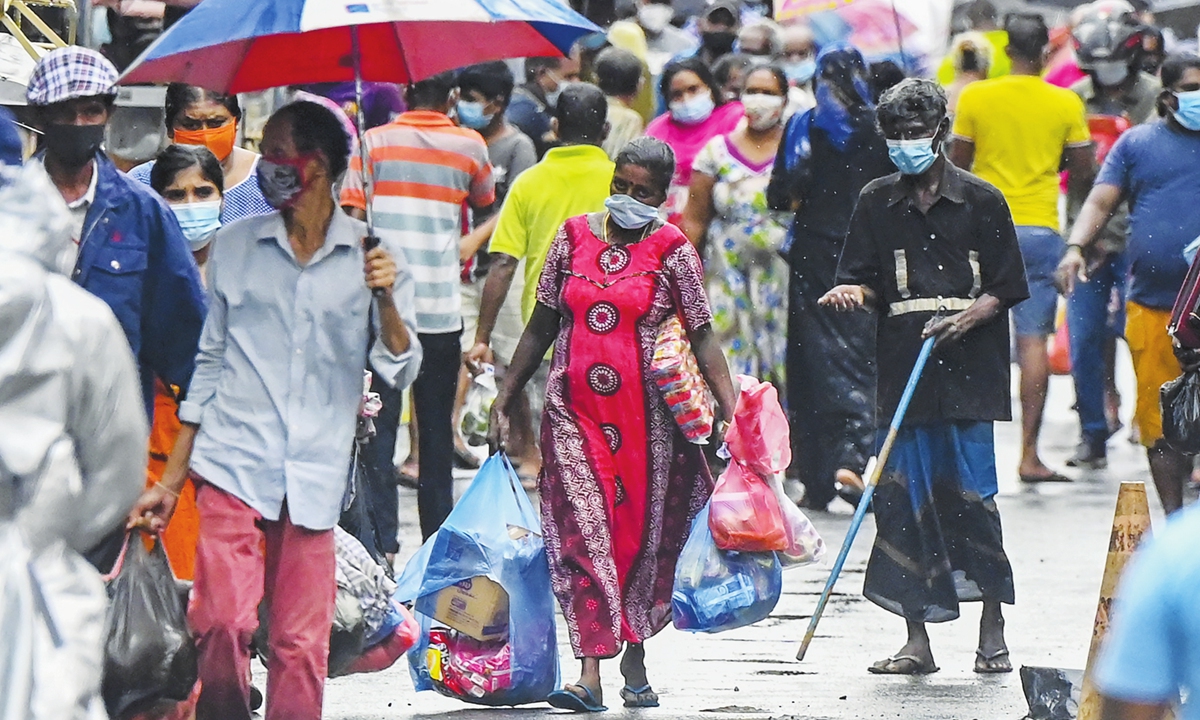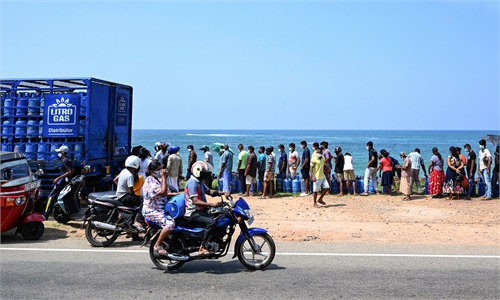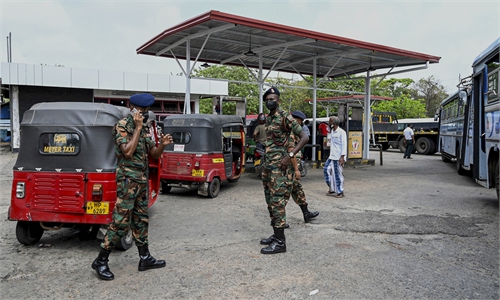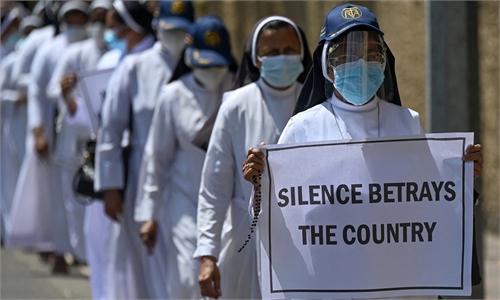
People purchase essential food items in Colombo, Sri Lanka. Photo: AFP
Embroiled in its worst economic crisis in decades, Sri Lanka said on Tuesday that it would temporarily default on all foreign debt until it had come to an agreement with creditors on how to restructure its loans, as it tries to preserve its dwindling foreign exchange reserves to import essential food and fuel.Unsurprisingly, some Indian and Western media outlets have attributed the unprecedented default by the South Asian nation to a so-called "debt trap" laid by China, claiming that "China-assisted projects in Sri Lanka are likely to deepen the indebtedness of the island nation." Such an attempt to smear Chinese projects in Sri Lanka reflects nothing but the lack of basic knowledge about Sri Lanka's debt problem.
Some in India have used the debt issue to play up the "China debt trap" or "China threat theory." This shortsighted approach is not only detrimental to India's interests, but also undermines the much-needed cooperation in the region. Development in South Asia needs India as much as it needs China. It is in the interests of all parties to strengthen cooperation to help Sri Lanka tackle the debt crisis.
The debt composition of the South Asian nation is very complicated and its outstanding external debt is mainly owed to international markets. China is only Sri Lanka's fourth biggest creditor, behind international financial markets, the Asian Development Bank and Japan. So it is unreasonable and groundless for some forces to hype up Chinese debt as a major cause of Sri Lanka's economic crisis while turning a blind eye to other major creditors.
As a developing country, Sri Lanka generally relies on garment exports, tourism and overseas remittances to sustain its foreign exchange reserves. But since the outbreak of the COVID-19 pandemic, all the three major sources of foreign exchange earnings have shrunk significantly, leaving the country struggling to make ends meet.
Moreover, the cause for Sri Lanka's current economic crisis goes beyond its domestic debt problem. The Russia-Ukraine conflict and the US-led economic sanctions against Russia may have further aggravated Sri Lanka's economic plight. The skyrocketing prices of consumer goods and shortages of food and fuel have driven the economy to the brink of collapse.
The deteriorating economic crisis in the South Asian nation is a typical example of how emerging economies, especially those small and vulnerable ones, are suffering from the shocks from the reckless Western economic sanctions. While the West claimed their sanctions are against Russia, they are seriously harming the interests of developing economies and may even cause a widespread humanitarian crisis.
Some may argue that the Russia-Ukraine conflict was not the main cause for Sri Lanka's debt problem, but given its own economic vulnerability, such a harsh external economic environment has undoubtedly accelerated the severity of its debt crisis. If anything, Sri Lanka's default problem should serve as a wake-up call for the global economy, especially the developing world, that is exposed to the growing external risks from geopolitical turbulence instigated by the US-led West.
For Sri Lanka, a country heavily dependent on imports of main production materials and daily necessities, its debt problem is in fact a reflection of the obstacles to its economic development, which have prevented domestic industries from transformation and being integrated into the global industrial chain. And the current external environment will make it harder for developing countries like Sri Lanka to accomplish the transformation and upgrade its economy.
China has maintained friendly relations with Sri Lanka and the two countries have carried out extensive mutually beneficial economic and trade cooperation over the years. Sri Lanka has embarked on a massive infrastructure construction program with the support of the Belt and Road Initiative, which is crucial for the country to integrate into the global value chain.
China certainly does not want to see Sri Lanka stuck in an economic crisis and would help wherever it can, especially when it comes to addressing its economic challenges. However, in a broader sense, developing countries, especially those in the Asia Pacific region, should step up and work jointly to fend off risks posed by toxic policies pushed by the US and its Western allies.



